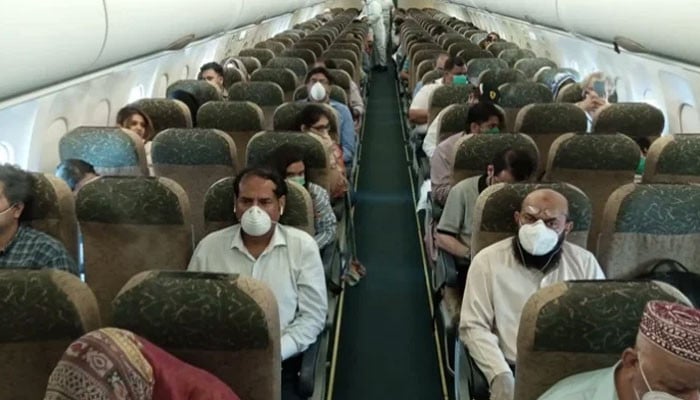US
Municipal affairs
字号+ Author:Smart News Source:Travel 2025-01-15 08:24:19 I want to comment(0)
THE commissioner Quetta, who is also the administrator of the Quetta Municipal Corporation (QMC), lately announced that several municipal properties will be privatised to raise revenue. The provincial government and the Balochistan Public-Private Partnership Authority were also taken on board. However, it must be noted that key decisions related to Quetta’s municipal issues must only be taken when an elected municipality is at the helm of affairs. Appointed administrators simply represent a stop-gap arrangement. Some of the properties mentioned above are currently rented by powerful traders for nominal sums. They wish to neither vacate the premises nor increase the amount. Such immovable properties are an already under-resourced QMC’s family silver. At the same time, one can question the district and divisional administration’s inability to have the premises vacated after due process of the law. The QMC can be supported to make better utilisation of these assets. Parting from them will make the QMC a basket case for the provincial government. Balochistan is entitled to 9.09 per cent of the funds from the Federal Divisible Pool, which translates to Rs894 billion. This share is an outcome of the 18th Amendment. However, the actual spirit of this amendment was the distribution of resources to the lowest level of the administrative units. Whereas the politicians want increasing financial shares for their provinces from the pool, no effort is made to constitute the mandatory provincial financial commissions to ensure the smooth transfer of funds to the districts and tehsils. The entire financial control now vests with the provincial government. Municipalities such as the QMC and other local councils depend on the provincial government for financial resources, which compromises their autonomy. As elected local councils do not exist in Balochistan now, the provincially appointed officers continue to call the shots in municipalities, without factoring in local needs and demands. Most development projects in the city are undertaken through the province’s Annual Development Programme. Stakeholders say that the choice of project is not linked to the development needs of the city and its residents. For instance, the city faces an acute shortage of water due to over-extraction from groundwater aquifers. But there has been no worthwhile effort to capture rainwater through groundwater recharge initiatives. Quetta’s natural land assets must be protected. Another challenge is the poor availability of decent public transport. Thousands of people commute in rickety vans, tri-wheelers and improvised pick-up trucks from nearby areas to Quetta. Informal operators continue to dominate the passenger transport scene, where the level of service, fares and comfort parameters are all determined by transporters. Womenfolk, the elderly, people with special needs and schoolchildren find it especially difficult to move around. There is an urgent need to upgrade options through intelligent route planning, gender-friendly transport and easier access for disadvantaged groups. Local institutions, especially the QMC, have a responsibility to properly maintain road spaces. If municipal bodies and provincial departments agree to coordinate, there can be quick progress. To conserve the air quality, public transport must be encouraged and private vehicles using substandard fuel should not be allowed on the roads. Quetta’s topography does not permit for enhanced emissions, which create health hazards. Natural land assets within municipal and regional limits must be carefully documented and protected. The Balochistan government is at present in the process of finalising the Quetta Master Plan 2050. The planning process is based on the appraisal of the current urban and regional situation, the formulation of goals, immediate action proposals, and medium- and long-term recommendations. It attempts to obtain feedback from stakeholders in the public and private sector, as well as representatives from various strata of society. It is a desirable move. To make it happen, institutional rearrangements, along with new measures, are being suggested to build the capacity of existing city institutions. The plan will only be meaningful if provided legal cover. It is hoped that the Balochistan government takes the necessary steps to shore up the capacity of the QMC, the Quetta Development Authority, the Balochistan Water and Sanitation Department, and other outfits. Located in a zone of high seismic activity, Quetta needs a strict building and zoning control regime to enable safe construction practices. Older buildings and structures also require assessment and retrofitting to enable them to survive disasters of various kinds. Quetta must be planned and managed well to live up to the hopes invested in it.
1.This site adheres to industry standards, and any reposted articles will clearly indicate the author and source;
 Related Articles
Related Articles-
Gold prices move up by Rs500 per tola in Pakistan
2025-01-15 08:16
-
یہ زندہ جیواشم ڈائنوسار سے پہلے کا ہے، اس نے بڑے پیمانے پر معدومی سے بچاؤ کیا۔
2025-01-15 07:45
-
روسی تیل ٹینکر سے تیل کا اخراج، درجنوں ڈالفن اور دیگر سمندری جانوروں کی ہلاکت کا سبب بنا
2025-01-15 07:23
-
امریکہ کے ویزے کی پروسیسنگ کے لیے سینکڑوں افغان افراد فلپائن پہنچ گئے ہیں۔
2025-01-15 07:08
 User Reviews
User Reviews Recommended Reads
Recommended Reads Hot Information
Hot Information- Pak Military courts hand down sentences to 25 civilians for May 9 Riots
- جنوبی کوریائی تفتیش کاروں نے پولیس سے یون کی گرفتاری کی درخواست کی ہے۔
- چینی صدر شی نے کرپشن کو کمیونسٹ پارٹی کے لیے سب سے بڑا خطرہ قرار دیا ہے۔
- بھارت میں جلاوطنی میں مقیم حسینہ کے خلاف دوسرا گرفتاری وارنٹ جاری (Bhaarat mein jalaawtni mein muqeem Hasina ke khilaaf doosra girftaari warrant jaari)
- South Africa reach World Test Championship final with victory over Pakistan
- ماؤیستوں کے جنگلاتی گڑھ میں جھڑپوں کے دوران چار باغی اور ایک ہندوستانی پولیس اہلکار ہلاک ہوگئے۔
- بھارت میں جلاوطنی میں مقیم حسینہ کے خلاف دوسرا گرفتاری وارنٹ جاری (Bhaarat mein jalaawtni mein muqeem Hasina ke khilaaf doosra girftaari warrant jaari)
- امریکی وزیر خارجہ بلینکن اپنی ایشیا اور یورپ کی دورہ کے دوران جنوبی کوریا کے سیاسی بحران میں مداخلت کرنے والے ہیں۔
- Naseem Vicky calls appearance on ‘Comedy Nights with Kapil’ his biggest mistake
 Abont US
Abont US
Follow our WhatasApp account to stay updated with the latest exciting content













